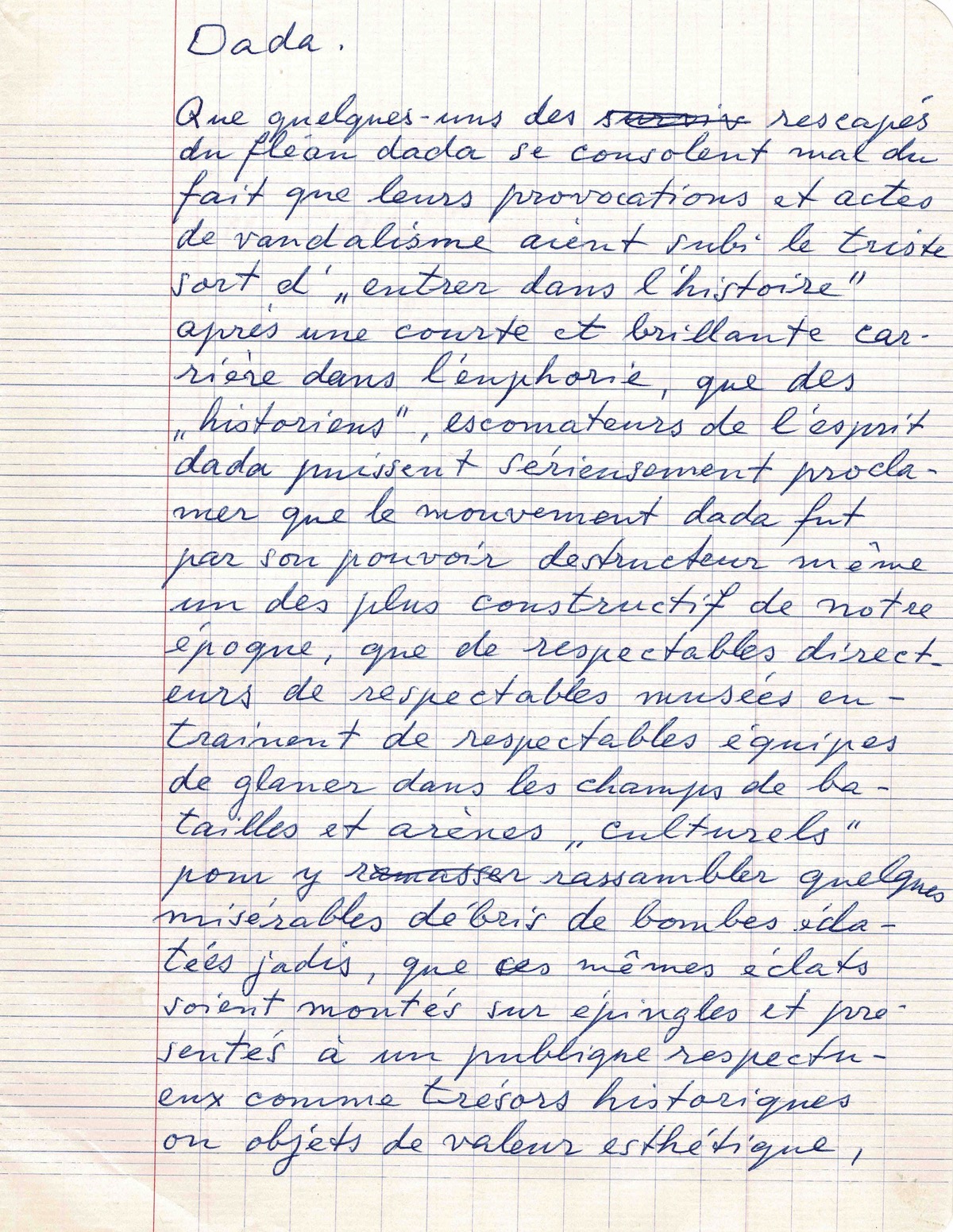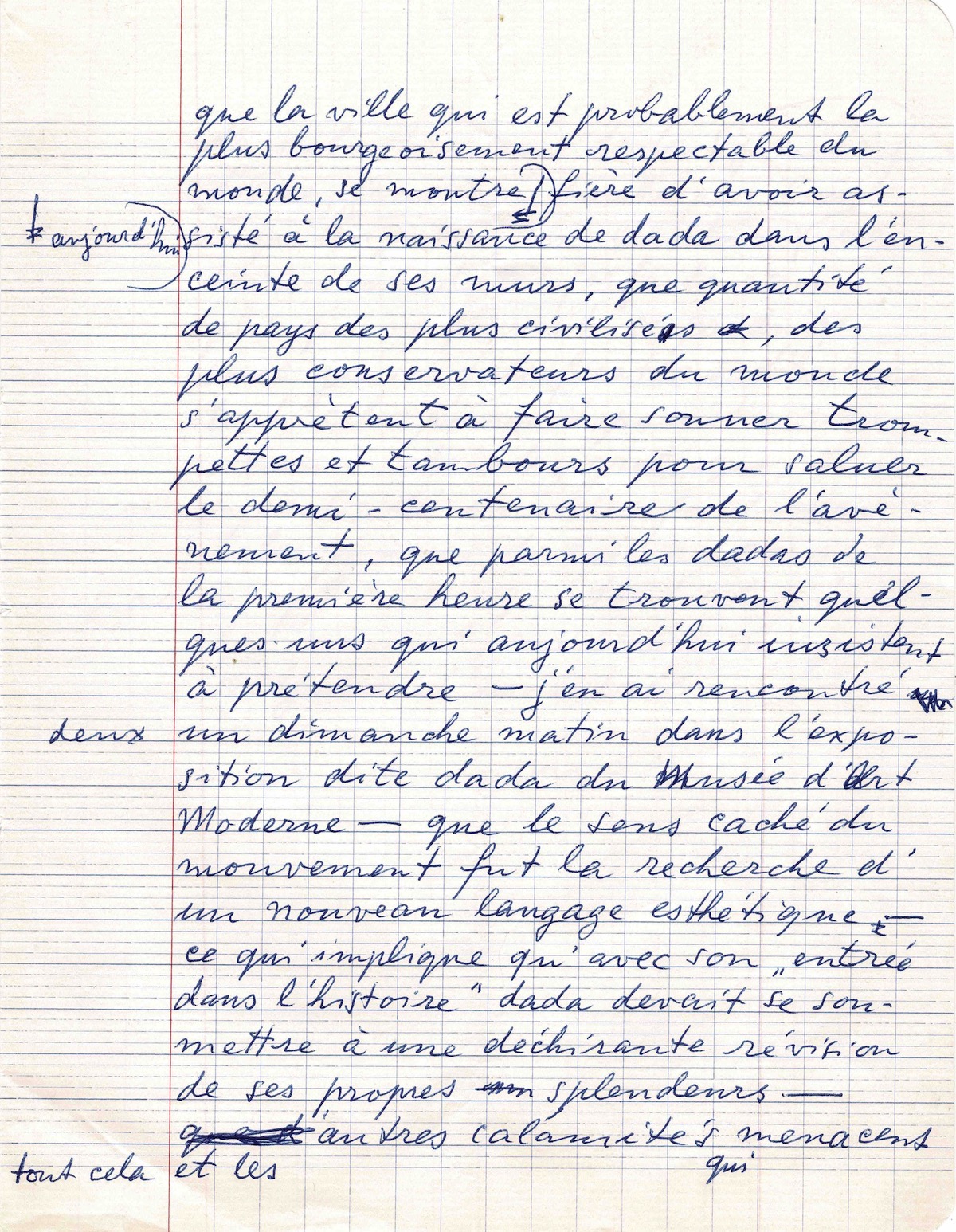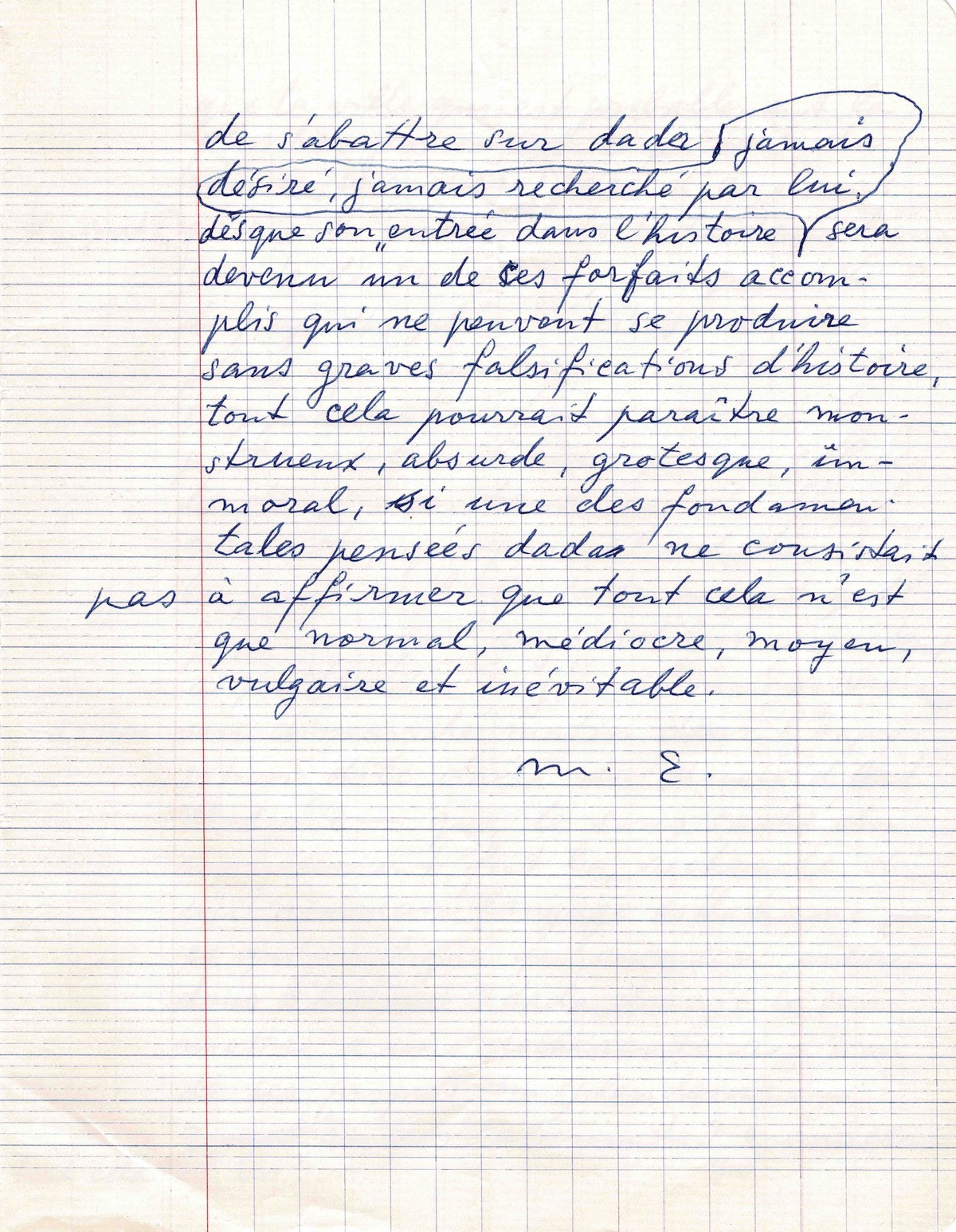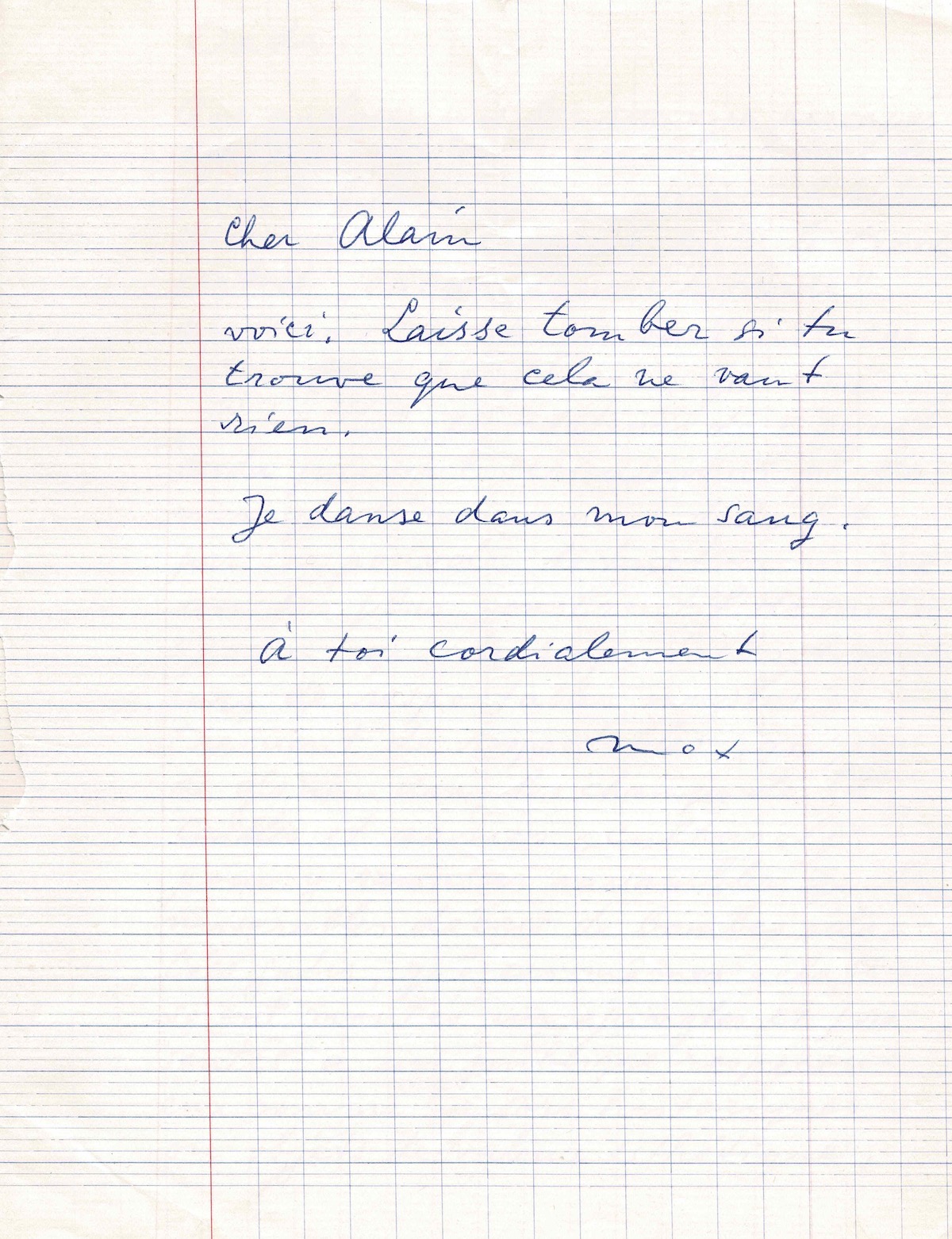Categories Autographs - Arts & Letters , ERNST Max , New releases , SURREALISM
Max ERNST – Autograph manuscript signed. “Dada.” 1967.
Important manuscript by Max Ernst – published in Le Monde on March 1, 1967 – revisiting the Dada heritage for the fiftieth anniversary of the movement.
6.500€




